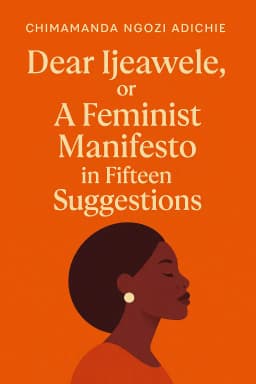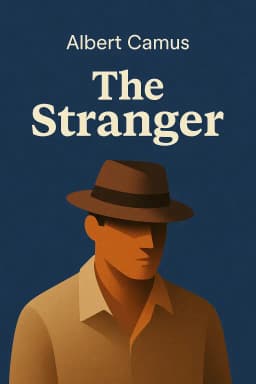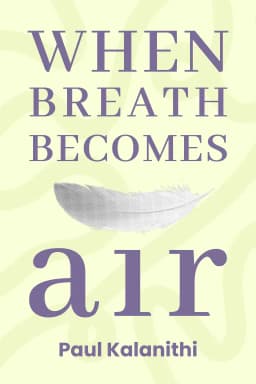
Pooh Bear, Taoist Master
Golden Hook & Introduction
SECTION
Michael: Alright Kevin, quick—what do you know about Taoism? Kevin: Uh... something about going with the flow? And maybe a yin-yang symbol on a dorm room poster? Honestly, my main reference point is probably the Dude from The Big Lebowski. Michael: Perfect. That's exactly where most of us are. But what if I told you the greatest Taoist master in Western literature isn't a wise old sage, but a stout, honey-obsessed bear of very little brain? Kevin: You’re talking about Winnie-the-Pooh. Come on. The bear who gets his head stuck in a honey pot is a philosophical genius? That feels like a stretch. Michael: That's the wild, and brilliant, premise of The Tao of Pooh by Benjamin Hoff. And what's fascinating is that Hoff wasn't some academic in an ivory tower. He wrote this in the early 1980s while working as a tree pruner in a Japanese garden in Oregon. He was literally immersed in nature and Asian aesthetics, and he saw this profound philosophy playing out in the Hundred Acre Wood. Kevin: Okay, that actually changes things. So this isn't just a cute gimmick. It came from a genuine place of observation. That makes it much more interesting than just a high-concept mashup. Michael: Exactly. It became a massive bestseller, stayed on the lists for nearly a year, and it’s even used in some college philosophy courses. Because Hoff tapped into something profound: maybe the path to wisdom isn't about adding more knowledge, but about stripping things down to their simple, essential nature. Kevin: The Pooh nature. I'm intrigued. So where do we even start with a Bear of Very Little Brain as our guru?
The Uncarved Block: Finding Wisdom in Simplicity
SECTION
Michael: We start with a core Taoist idea that Pooh embodies perfectly: P'u, or the Uncarved Block. The principle is that things in their original, simple state have a natural power that gets lost when we try to complicate them. Kevin: An uncarved block. So, a simple piece of wood is more powerful than an intricate sculpture? That feels… counterintuitive. Our whole society is built on carving things, on adding complexity and features. Michael: That’s the point! Hoff uses the other characters to show us how we go wrong. Think about Rabbit. He’s clever, he has "Brain," he's always organizing, planning, and leading search parties. He’s the guy with the color-coded spreadsheet for everything. Kevin: Right, the project manager of the forest. He seems like the most competent one there. Michael: Does he? Let’s look at the evidence. There's a fantastic story where Rabbit, Pooh, and Piglet get lost in a misty part of the forest. They keep walking and end up back at the same sand-pit, over and over. Each time, Rabbit confidently announces, "Ah, yes, I know exactly where we are!" and marches them off in another direction… only to end up right back at the pit. Kevin: Oh, I know that guy. The one who refuses to admit he’s lost and won't ask for directions. It’s pure ego. Michael: Pure "Brain," as Hoff would say. Rabbit is trying to think his way out. He’s forcing a solution. After this happens a few times, Pooh, who has been quiet the whole time, has an idea. It’s a very Pooh-like idea. He says, "I've been thinking... and I think that if we want to get somewhere else, we should try not to find it." Kevin: Wait, what? That makes no sense. Michael: Rabbit thinks so too! He scoffs. But Pooh’s logic is simple. He says, "We keep looking for Home and we keep finding this Pit. So I think if we look for this Pit, we're sure to find Home." He decides to just go home, guided by the "calling" of the twelve pots of honey in his cupboard. He just follows his simple, inner nature. And guess what? He and Piglet wander off and immediately run into Christopher Robin. They're saved. Rabbit, who tried to prove his cleverness, is left lost in the mist. Kevin: Wow. So Rabbit's cleverness was a liability. Pooh's simple-mindedness, his "Uncarved Block" nature, was the actual solution. He didn't out-think the problem; he just stopped thinking about it and followed his gut… or his stomach, in this case. Michael: Exactly. And it’s not just Rabbit. Think of Owl, the great scholar. He can spell his own name, and he uses big words, but he can’t even spell "Tuesday" correctly. He insists it must start with a "Two." He has knowledge, but no real wisdom. Kevin: And then there's Eeyore. The ultimate complainer. He knows just enough to be miserable about everything. "Pathetic," he says, looking at his own reflection. "That's what it is. Pathetic." He uses his brain to find flaws in everything, even his own birthday presents. Michael: Hoff calls it the "Eeyore Attitude." It's the person who knows everything is wrong and wants to make sure you know it too. All these characters—Rabbit, Owl, Eeyore—have "carved" themselves into something complicated. Rabbit is Cleverness, Owl is Abstract Knowledge, Eeyore is Cynicism. Pooh is just… Pooh. He’s the Uncarved Block. And that’s why, as Piglet says, "He does silly things and they turn out right." Kevin: That’s a secret superpower. The ability to do silly things and have them turn out right. It reminds me of the criticism the book sometimes gets. Some readers find Hoff's tone a bit condescending toward these "Bisy Backsons" or clever people. But hearing that story, it feels less like a judgment and more like a diagnosis of a problem we all have. We think our cleverness will save us, but often it just gets us stuck at the same sand-pit again and again. Michael: Precisely. The book argues that true wisdom isn't about knowing more, it's about being more. Being in tune with your own simple nature.
The Pooh Way: Effortless Action and Inner Nature
SECTION
Kevin: Okay, so being simple is a superpower. I'm sold on the 'what'. But how do you do that? It feels like you have to try to be simple, which is a paradox. "I'm going to try really hard to be effortless today!" It just doesn't work. Michael: You’ve hit on the next big Taoist idea: Wu Wei. It’s often translated as "non-action" or "effortless action." But it doesn't mean doing nothing. It means acting in harmony with the natural flow of things, without meddlesome, egotistical effort. It’s what Hoff calls "The Pooh Way." Kevin: So it's like swimming with the current instead of against it. Michael: Exactly. And the foundation of Wu Wei is knowing and accepting your own Inner Nature. Hoff uses Pooh's "Cottleston Pie" song to explain this. The first line is, "A fly can't bird, but a bird can fly." It's so simple, but so profound. Kevin: A fly can’t be a bird. You are what you are. Don't try to be something you're not. Michael: Right. And trying to force things against their nature creates endless trouble. This is where Rabbit's plan to "Unbounce" Tigger comes in. Tigger's bouncing annoys Rabbit to no end. So he hatches this "very clever" plan to take Tigger deep into the woods and lose him, hoping a night alone will scare the bounce out of him and make him a "Sad and Humble Tigger." Kevin: This already sounds like a terrible idea. You can't just "unbounce" a Tigger. The bounce is the whole point of Tigger! Michael: Of course! The plan backfires spectacularly. Rabbit, Pooh, and Piglet try to lose Tigger, but Tigger knows the forest like the back of his paw. Who gets lost? Rabbit, the one with the Brain. He wanders in circles, getting more and more panicked, until who should appear but a cheerful, bouncy Tigger, who then leads him home. Kevin: So the very thing Rabbit tried to eliminate in Tigger—his "Tigger-ness"—is what ended up saving him. That’s a fantastic lesson. We're always told to work on our weaknesses, to sand down our rough edges. This book is saying maybe those rough edges are the most useful parts of us. Michael: They can be, if we understand them. Hoff shares a powerful old Taoist story about this. In the state of Ch'u, there was a notorious housebreaker. A real criminal. But the state was attacked by a neighboring army and was losing badly. The housebreaker went to the general and said, "I can help." Kevin: How is a thief going to stop an army? Michael: The general, being a wise Taoist, recognized the man's unique skill. That night, the housebreaker snuck into the enemy general's tent and stole the curtains from around his bed. The next morning, the enemy general found them missing and was spooked. The second night, the housebreaker snuck in again and stole the general's pillow. The third night, he stole the jade hairpin right out of the general's hair. Kevin: That is terrifyingly impressive. He’s basically saying, "I could have taken your head." Michael: Exactly. The enemy general, realizing he was completely vulnerable, packed up his entire army and went home. The state of Ch'u was saved. The housebreaker's "negative" skill—stealth, infiltration—was transformed into a virtue because it was used in harmony with his nature and the needs of the situation. Kevin: Wow. That’s a much deeper concept than just "go with the flow." It's about radical self-acceptance. It’s not about fixing your flaws, but about finding the right context for them to become strengths. That’s a game-changer for how we think about personal growth, careers, everything. Michael: It’s the difference between trying to make a fly into a bird, and realizing that a fly is perfectly good at being a fly. And that is the essence of the Pooh Way.
The Bisy Backson's Trap: Escaping the Cult of 'Important'
SECTION
Michael: And that leads us to the biggest villain in the book, a character who isn't even in the original stories. Hoff calls him the "Bisy Backson." Kevin: The Bisy Backson. I have a feeling I know this person intimately. Is it me? Am I the Bisy Backson? Michael: (Laughs) We all are, to some extent. The Bisy Backson is the modern Westerner, always rushing, always trying to save time, always working for some great reward that's just around the corner. He's so busy trying to get to the future that he completely misses the present. Kevin: Ouch. That hits hard. It’s the person who eats lunch at their desk while answering emails, listens to a podcast on 2x speed while driving to a meeting they’re already late for. It’s the cult of productivity. Michael: Hoff uses a brilliant analogy to capture this cultural difference. He contrasts the American Hamburger Stand with the traditional Chinese Teahouse. The Hamburger Stand is all about efficiency. Get in, get your food, get out. The chairs are uncomfortable on purpose. You're a unit of consumption. Kevin: Right, you’re an inconvenience to be processed as quickly as possible. Michael: But the Teahouse is the opposite. It's a social hub. You go there to relax, to talk, to play games, to spend time. The goal isn't to save time; it's to enjoy time. The Bisy Backson can't comprehend the Teahouse. It looks like a waste of time to him. Kevin: Because he doesn't see the value in the process, only in the outcome. The journey is just an obstacle to get to the destination. Michael: And this is where Pooh delivers one of the most profound lessons. In one scene, the narrator finds Pooh sitting under a tree on a beautiful day, just enjoying himself. The narrator, a classic Bisy Backson, asks, "What are you doing, Pooh?" Pooh says, "Nothing." The narrator is horrified. "Nothing? You could be doing something Important! You could be getting educated!" Kevin: He’s trying to optimize Pooh’s relaxation. That is the most Bisy Backson thing I've ever heard. Michael: Pooh just looks around at the beautiful day, the singing birds, and asks a simple, devastating question: "Why ruin it?" He's already happy. He's already in a perfect moment. Why would he trade that for the anxiety of becoming "Important"? Kevin: That question—"Why ruin it?"—is a direct shot at our entire culture of self-improvement and hustle. We’re so busy trying to build a better future that we ruin a perfectly good present. Michael: And we burn ourselves out. Hoff makes the point that the Bisy Backson thinks he's saving time, but he's actually wasting it. "By trying to save every bit of it, he ends up wasting the whole thing." He never actually lives. Kevin: I have to admit, this is the part of the book where the criticism of Hoff's tone sometimes feels valid. He can come across as pretty judgmental of anyone with ambition—lawyers, scientists, business people. Is it really so bad to want to achieve things? Is the only path to happiness to sit under a tree and eat honey? Michael: I think that's a slight misreading, but a fair critique. The book isn't anti-achievement; it's anti-struggle. It's not against doing things; it's against the frantic, joyless, egotistical way we often do them. The Taoist ideal isn't to be lazy; it's to be effective without the friction and anxiety. It’s to find the work that feels like play because it aligns with your Inner Nature.
Synthesis & Takeaways
SECTION
Kevin: So when you put it all together—the Uncarved Block, Wu Wei, and escaping the Bisy Backson trap—what’s the big picture here? Michael: The big picture is that we've been taught that the path to wisdom and happiness is a difficult, uphill climb. We need to learn more, do more, be more. The Tao of Pooh flips that entirely. It suggests the path is actually a gentle, downhill slope. The "work" isn't in adding things, but in letting go. Kevin: Letting go of what, specifically? Michael: Letting go of the need to be clever like Rabbit, the need to have all the answers like Owl, and the need to find fault in everything like Eeyore. It's about letting go of the frantic belief that happiness is somewhere else, in some future moment after you've accomplished one more "Important" thing. Kevin: So the wisdom of Pooh is the wisdom of subtraction. It's about returning to that simple, "uncarved" state where you can just respond to what's in front of you, honestly and without ego. Michael: Exactly. And in that state, you find you can accomplish a great deal, often more than you could through frantic effort, and you can actually enjoy the process. You find the Pooh Way. It’s not about being passive; it’s about being powerfully present. Kevin: That’s a beautiful way to put it. It makes me think, the big takeaway is to ask yourself: which character from the Hundred Acre Wood are you, really? Are you an anxious, over-planning Rabbit? A gloomy, cynical Eeyore? A know-it-all Owl? Or are you trying to find your inner Pooh? Michael: That’s the perfect question. And it’s a surprisingly revealing one to ask yourself. We'd love to hear your thoughts. Find us on our socials and tell us which character you resonate with the most. Kevin: Be honest! We all have a little Eeyore in us on a Monday morning. Michael: This is Aibrary, signing off.









